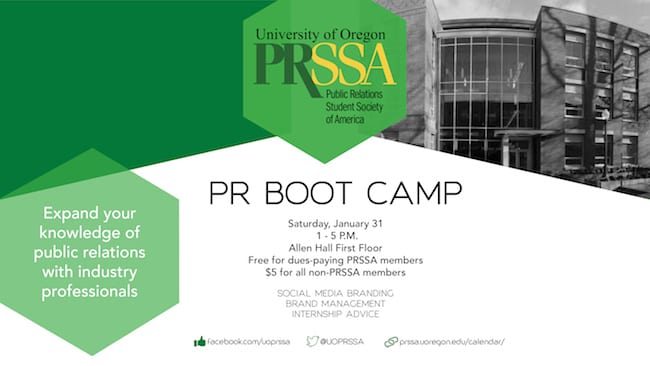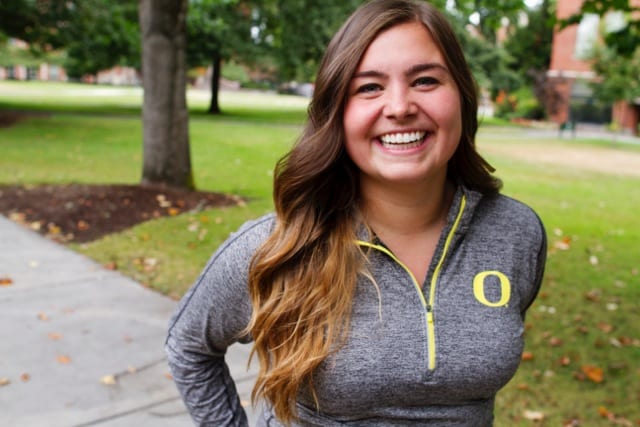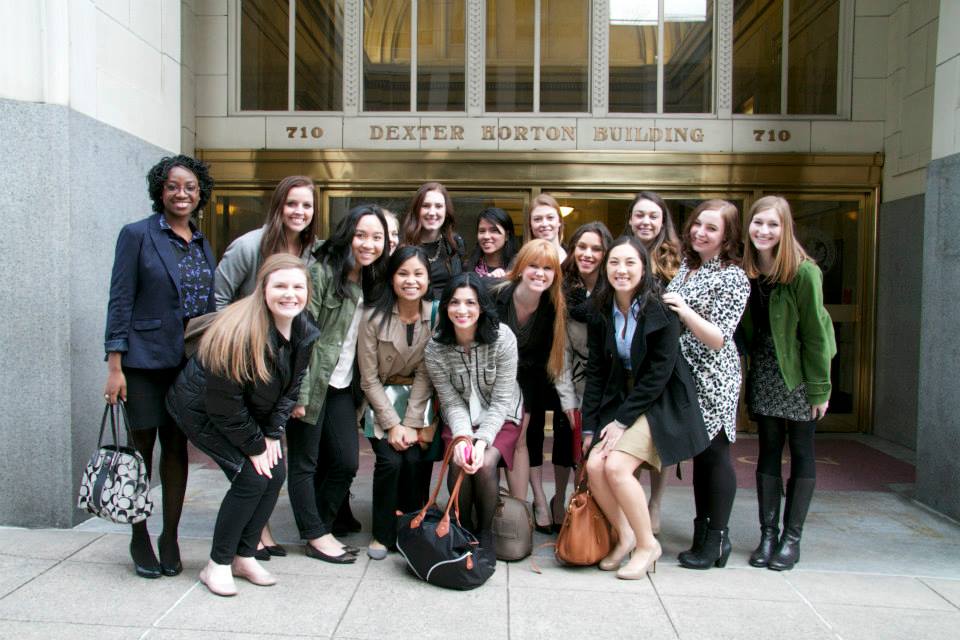By Talia Smith, UO PRSSA Communications Director and former Veracity intern
For our last meeting of Fall term, Amy Rosenberg of Veracity Marketing in Portland was kind enough to drive down to Eugene to talk to our chapter about traditional versus digital PR. As we found out, there is no difference.
Amy’s presentation was unique to our guest speaker lineup as we had yet to learn about digital PR and how it can be the “secret weapon to SEO.” Many of us have heard of SEO and know it’s important, but we don’t really know what role we will play in SEO as PR students and aspiring professionals. Amy did a great job explaining what we can do to start thinking digitally to make media coverage go further while helping clients maximize their online presence.
First, if your client doesn’t have a website, encourage them to create one or outsource someone to make a “SEO-friendly” site. Amy compared a company’s website to a flyer, except this flyer doesn’t end up at the bottom of your purse. A website provides your brand’s stakeholders with a platform to learn more about them and follow up. “If you don’t have a presence online, you don’t exist,” Amy said. The call to action of most of your PR efforts are going to lead back to this website which is why it is essential your client has one.
Once your client has a website, you need to help people find it which is where SEO comes in. In a nutshell, websites can get lost in a sea of search results on Google and Bing and SEO helps a site rank higher to garner more clicks. Let’s be real, no one is going to click to the second page of Google. In order for a website to be useful it must appear in the top results when using keywords associated with your brand. Blogging provides a website more keywords for people to search.
Once a website and blog are up and running, PR and social media can be used to drive viewers to the site through links. When it comes to securing media coverage, Amy suggests keeping your pitch to five sentences or less and linking out to a press release as reporters appreciate brevity. Also, don’t spam anyone. Instead, take the time to personalize a pitch and offer the same respect to all positions in the newsroom. Amy says bloggers and writers are the most important people in the newsroom to PR professionals because they could be editors five years down the road.
Once you secure media coverage, it is imperative to get the link so it can be sent to your client and shared on social media, an important step to amplifying viewers. It is also wise to have an “In the News” tab on a website and have an ongoing list of links to recent media coverage. If you can’t find a link to coverage you know you secured, Amy recommends asking the digital editor who is responsible for placing stories on a traditional news media outlet’s website. You might feel like you are bothering someone just for a link but Amy assures that these digital editors understand you are asking for SEO purposes and will respect you.
At the end of the presentation, Amy was asked what students can do to stay ahead of the curve when it comes to digital and traditional PR. She suggests “showing up” to professional development organizations such as PRSSA and PRSA for PR and SEMpdx for digital. Fortunately, Amy will be speaking at SEMpdx’s Engage conference in March 2018.
Thank you, Amy, for sharing your insight about traditional and digital PR. Please come back soon!

















